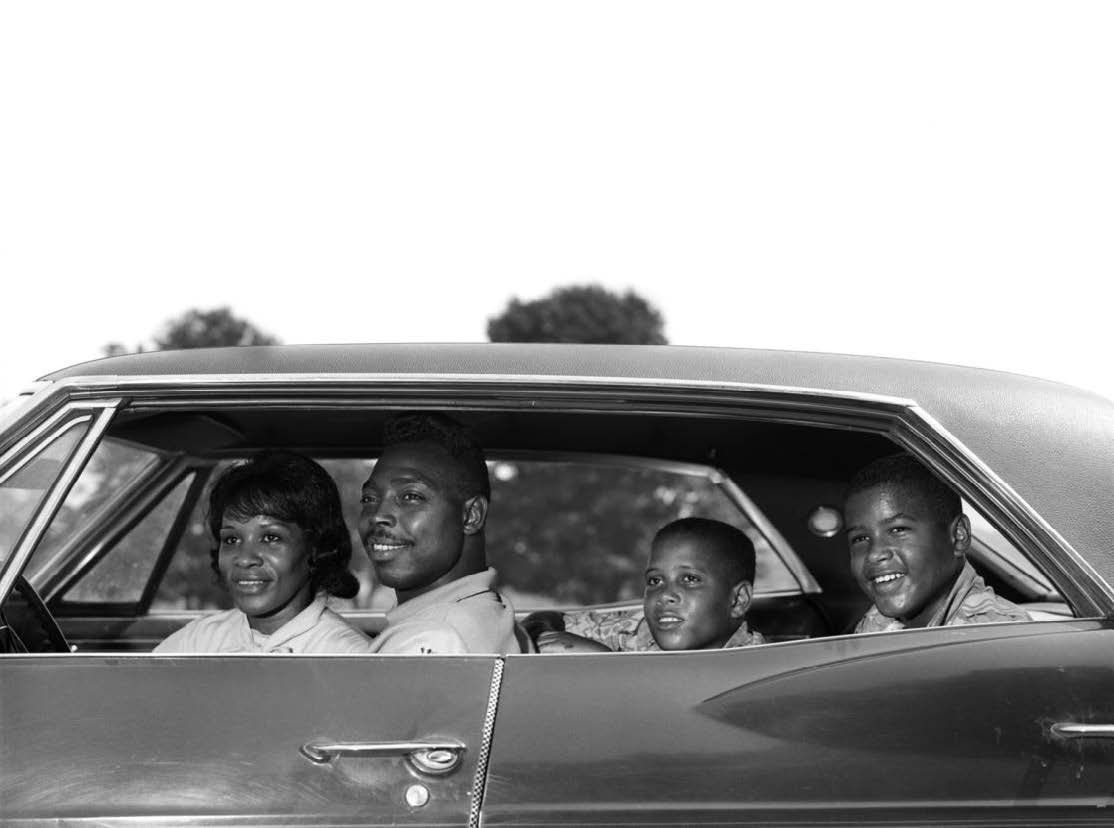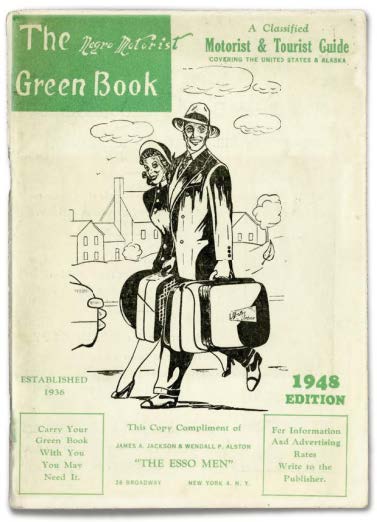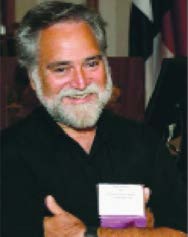RICK RADER, MD ■ EDITOR-IN-CHIEF
Shades of Green
While Exceptional Parents did not have their own Green Book, they certainly had a way of finding out (from other parents) where they were welcome and where they were respected. Being welcomed and respected has always been the two basic needs on every exceptional parent's wish list.

A few months ago, a parent of an individual we support at our agency (The Orange Grove Center) brought me a gift in appreciation for some advocating I did on his behalf. It was a gold plastic replica of an Oscar standing on a base with the words, HOLLYWOOD BEST DOCTOR.
While it was a lovely gesture and greatly appreciated, it was a little chintzy and I put it in our library next to a statue of the Empire State Building with a gorilla on top of the spire. The tribute to King Kong was purchased by me from a souvenir store in Times Square the day before I left The Big Apple for Chattanooga nearly 25 years ago. I thought I had to bring something that would remind me of Manhattan, and it has been in our library ever since. The only casualty has been the left arm of King Kong, the result of a behavioral incident several years ago. We didn't file a "destruction of property incident report" since describing the damage as "loss of a gorilla's left arm" would have required too long an explanation and it would have resulted in the state sending down three investigators.
So we proudly display the "Oscar" and the Empire State Building souvenir next to each other.
The real Oscar (officially known as the Academy Award of Merit) is made of gold-plated bronze on a black metal base. It is thirteen-and-a-half inches tall, weighs eight-and-a-half pounds and "depicts a knight rendered in Art Deco style holding a crusader's sword, standing on a reel of film with five spokes. The five spokes represent the original branches of the Academy: Actors, Writers, Directors, Producers, and Technicians. The model for the statuette is said to be Mexican actor Emilio "El Indio" Fernandez. The first Oscar was awarded in 1929.
Several weeks ago, a real Oscar was awarded to the producers of the film Green Book, for the prestigious Best Picture of the year. So in essence both Producer Jim Burke and I have statues of Emilio Fernandez displayed in our offices
Green Book deserved to win several Oscars. Everything about it was top notch. The film was based on a true story and it revolved around the 1962 tour in the Deep South by a Jamaican-American jazz pianist (Don Shirley) and his driver and bodyguard, an Italian-American named Tony Vallelonga.
The actual Green Book was a guidebook created in the 1930s that listed the names and locations of hotels, motels, restaurants and public rest rooms that would accept African-Americans during the time of widespread racial segregation and sunset towns. Sunset towns were communities that kept out blacks (or sometimes ChineseAmericans, Jewish-Americans, etc.) by force, law, or custom. They were also called "sundown towns." There were literally thousands of them and were not restricted to the Deep South, they were found from Maine to California.
It was not that blacks were simply denied access and service into these places; they often found themselves in physical danger, thus, the need for a guidebook that served as a lighthouse for safe entry.
Amy Goodman, writing in Democracy Now, describes the movie: "It details the vio lence, the insults, the discrimination black travelers faced on the road, as well as the pride and sense of community they felt in the safe spaces they created around the country, in the form of restaurants, hotels and vacation retreats."
The book was created by Victor Hugo Green, a black postal worker living in Harlem. Green was inspired to compile the book from a Jewish friend who wrote a guide for Jews who wanted to spend time in the Catskill Mountains (outside of New York City) in the summer to escape from the heat. Jews, like blacks, were denied access to hotels and restaurants. The official name was the "Negro Motorist Green-Book".
The book had 9,500 listings over the period of 30-some odd years. The cover of the 1949 edition stated, "Carry your Green Book with you – you may need it." This wasn't simply a marketing slogan, it was the truth.
You didn't need a guide that listed where blacks were not welcome. If it wasn't in the Green Book, black travelers knew better than to stop there for lunch or for an overnight stay.
Exceptional Parents never published their version of the Green Book; not that they didn't need it. Likewise, from Maine to California, there were thousands of clinics, schools, camps, neighborhoods, houses of worship, amusement parks, restaurants, dental offices, barbers, hotels and entertainment venues that frowned upon having people with disabilities darken their door. They were thought of as being both burdensome and unattractive. Both were seen as bad for business so they didn't want to encourage their patronage. While E x c e p t i o n a l Parents did not have their own Green Book, they certainly had a way of finding out (from other parents) where they were welcome and where they were respected. Being welcomed respected and has always been the two basic needs on every exceptional parent's wish list.
Since 1971, parents of children with exceptional needs considered Exceptional Parent magazine as the equivalent of the Green Book.
While the long-fought disability rights movement has now opened doors and hearts to the special needs community, we owe a special thanks to those early pioneers that welcomed "exceptional families." Every single one of them deserves a golden statuette of a knight holding a crusader's sword.•

HAVE BOOK, WILL TRAVEL: The Green Book listed hotels, motels, restaurants and public rest rooms that would accept African-Americans during the time of widespread racial segregation. If it wasn't in the Green Book, black travelers knew better than to stop there for lunch or for an overnight stay.

ANCORA IMPARO In his 87th year, the artist Michelangelo (1475 -1564) is believed to have said "Ancora imparo" (I am still learning). Hence, the name for my monthly observations and comments. — Rick Rader, MD, Editor-in-Chief, EP Magazine Director, Morton J. Kent Habilitation Center Orange Grove Center, Chattanooga, TN